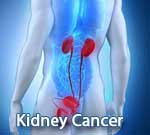Thyroid Cancer Treatment India
Treatment and Diagnosis:
If you have symptoms that suggest thyroid cancer, your doctor will help you find out whether they are from cancer or some other cause. Your doctor will ask you about your personal and family medical history. You may have one or more of the following tests:
- Physical exam: Your doctor feels your thyroid for lumps (nodules). Your doctor also checks your neck and nearby lymph nodes for growths or swelling.
- Blood tests: Your doctor may check for abnormal levels of thyroid-stimulating hormone (TSH) in the blood. Too much or too little TSH means the thyroid is not working well. If your doctor thinks you may have medullary thyroid cancer, you may be checked for a high level of calcitonin and have other blood tests.
- Ultrasound: An ultrasound device uses sound waves that people cannot hear. The device aims sound waves at the thyroid, and a computer creates a picture of the waves that bounce off the thyroid. The picture can show thyroid nodules that are too small to be felt. The doctor uses the picture to learn the size and shape of each nodule and whether the nodules are solid or filled with fluid. Nodules that are filled with fluid are usually not cancer. Nodules that are solid may be cancer.
- Thyroid scan: Your doctor may order a scan of your thyroid. You swallow a small amount of a radioactive substance, and it travels through the bloodstream. Thyroid cells that absorb the radioactive substance can be seen on a scan. Nodules that take up more of the substance than the thyroid tissue around them are called "hot" nodules. Hot nodules are usually not cancer. Nodules that take up less substance than the thyroid tissue around them are called "cold" nodules. Cold nodules may be cancer.
- Biopsy: A biopsy is the only sure way to diagnose thyroid cancer. A pathologist checks a sample of tissue for cancer cells with a microscope.
Your doctor may take tissue for a biopsy in one of two ways:
- Fine-needle aspiration: Most people have this type of biopsy. Your doctor removes a sample of tissue from a thyroid nodule with a thin needle. An ultrasound device can help your doctor see where to place the needle.
- Surgical biopsy: If a diagnosis cannot be made from fine-needle aspiration, a surgeon removes the whole nodule during an operation. If the doctor suspects follicular thyroid cancer, surgical biopsy may be needed for diagnosis.
You may want to ask your doctor these questions before having a biopsy:
- Will I have to go to the hospital for the biopsy?
- How long will it take?
- Will I be awake? Will it hurt?
- Are there any risks? What are the chances of infection or bleeding after the biopsy?
- How long will it take me to recover?
- Will I have a scar on my neck?
- How soon will I know the results? Who will explain the results to me?
- If I do have cancer, who will talk to me about the next steps? When?
Staging
To plan the best treatment, your doctor needs to learn the extent (stage) of the disease. Staging is a careful attempt to find out the size of the nodule, whether the cancer has spread, and if so, to what parts of the body.
Thyroid cancer spreads most often to the lymph nodes, lungs, and bones. When cancer spreads from its original place to another part of the body, the new tumor has the same kind of cancer cells and the same name as the original cancer. For example, if thyroid cancer spreads to the lungs, the cancer cells in the lungs are actually thyroid cancer cells. The disease is metastatic thyroid cancer, not lung cancer. For that reason, it's treated as thyroid cancer, not lung cancer. Doctors call the new tumor "distant" or metastatic disease.
Staging may involve one or more of these tests:
- Ultrasound: An ultrasound exam of your neck may show whether cancer has spread to lymph nodes or other tissues near your thyroid.
- CT scan: An x-ray machine linked to a computer takes a series of detailed pictures of areas inside your body. A CT scan may show whether cancer has spread to lymph nodes, other areas in your neck, or your chest.
- MRI: MRI uses a powerful magnet linked to a computer. It makes detailed pictures of tissue. Your doctor can view these pictures on a screen or print them on film. MRI may show whether cancer has spread to lymph nodes or other areas.
- Chest x-ray: X-rays of your chest may show whether cancer has spread to the lungs.
- Whole body scan: You may have a whole body scan to see if cancer has spread from the thyroid to other parts of the body. You get a small amount of a radioactive substance. The substance travels through the bloodstream. Thyroid cancer cells in other organs or the bones take up the substance. Thyroid cancer that has spread may show up on a whole body scan.
Phone Numbers Reach Us -
India & International : +91 9371770341
Treatment
- Surgery
- Thyroid Hormone Treatment
- Radioactive Iodine Therapy
- External Radiation Therapy
- Chemotherapy
People with thyroid cancer have many treatment options. Treatment usually begins within a few weeks after the diagnosis, but you will have time to talk with your doctor about treatment choices and get a second opinion.
The choice of treatment depends on:
- the type of thyroid cancer (papillary, follicular, medullary, or anaplastic)
- the size of the nodule
- your age
- whether the cancer has spread
You and your doctor can work together to develop a treatment plan that meets your needs.
Your doctor may refer you to a specialist who has experience treating thyroid cancer, or you may ask for a referral. An endocrinologist is a doctor who specializes in treating people who have hormone disorders. You may see a thyroidologist, an endocrinologist who specializes in treating diseases of the thyroid.
You may have a team of specialists. Other specialists who treat thyroid cancer include surgeons, medical oncologists, and radiation oncologists . Your health care team may also include an oncology nurse and a registered dietitian.
Your doctor can describe your treatment choices and the expected results. Thyroid cancer may be treated with surgery, thyroid hormone treatment, radioactive iodine therapy, external radiation therapy, or chemotherapy. Most patients receive a combination of treatments. For example, the standard treatment for papillary cancer is surgery, thyroid hormone treatment, and radioactive iodine therapy. Although external radiation therapy and chemotherapy are not often used, when they are, the treatments may be combined.
Surgery and external radiation therapy are local therapies. They remove or destroy cancer in the thyroid. When thyroid cancer has spread to other parts of the body, local therapy may be used to control the disease in those specific areas.
Thyroid hormone treatment, radioactive iodine therapy, and chemotherapy are systemic therapies. Systemic therapies enter the bloodstream and destroy or control cancer throughout the body.
You may want to know about side effects and how treatment may change your normal activities. Because cancer treatments often damage healthy cells and tissues, side effects are common. Side effects depend mainly on the type and extent of the treatment. Side effects may not be the same for each person, and they may change from one treatment session to the next. Before treatment starts, ask your health care team to explain possible side effects and suggest ways to help you manage them.
At any stage of disease, care is available to relieve the side effects of treatment, to control pain and other symptoms, and to help you cope with the feelings that a diagnosis of cancer can bring.
You may want to talk to your doctor about taking part in a clinical trial, a research study of new treatment methods. See "The Promise of Cancer Research" section.
You may want to ask your doctor these questions before your treatment begins:
- What type of thyroid cancer do I have? May I have a copy of the report from the pathologist?
- What is the stage of my disease? Has the cancer spread from the thyroid? If so, to where?
- What are my treatment choices? Which do you recommend for me? Why?
- Will I have more than one kind of treatment?
- What are the expected benefits of each kind of treatment?
- What are the risks and possible side effects of each treatment? What can we do to control the side effects?
- What can I do to prepare for treatment?
- Will I need to stay in the hospital? If so, for how long?
- What is the treatment likely to cost? Will my insurance cover the cost?
- How will treatment affect my normal activities?
- What is my chance of a full recovery?
- Would a clinical trial be appropriate for me? Can you help me find one?
- How often will I need checkups?
Surgery
Most people with thyroid cancer have surgery. The surgeon removes all or part of the thyroid. The type of surgery depends on the type and stage of thyroid cancer, the size of the nodule, and your age.
- Total thyroidectomy: This surgery can be used for all types of thyroid cancer. The surgeon removes all of the thyroid through an incision in the neck. If the surgeon is not able to remove all of the thyroid tissue, it can be destroyed by radioactive iodine therapy later.
Nearby lymph nodes also may be removed. If cancer has invaded tissue within the neck, the surgeon may remove nearby tissue. If cancer has spread outside the neck, surgery, radioactive iodine therapy, or external radiation therapy may be used to treat those areas. - Lobectomy: Some people with follicular or papillary thyroid cancer may have only part of the thyroid removed. The surgeon removes one lobe and the isthmus. Some people who have a lobectomy later have a second surgery to remove the rest of the thyroid. Less often, the remaining thyroid tissue is destroyed by radioactive iodine therapy.
The time it takes to heal after surgery is different for each person. You may be uncomfortable for the first few days. Medicine can help control your pain. Before surgery, you should discuss the plan for pain relief with your doctor or nurse. After surgery, your doctor can adjust the plan if you need more pain relief.
Surgery for thyroid cancer removes the cells that make thyroid hormone. After surgery, nearly all people need to take pills to replace the natural thyroid hormone. You will need thyroid hormone pills for the rest of your life.
If the surgeon removes the parathyroid glands, you may need to take calcium and vitamin D pills for the rest of your life.
In a few people, surgery may damage certain nerves or muscles. If this happens, a person may have voice problems or one shoulder may be lower than the other.
You may want to ask your doctor these questions before having surgery:
- Which type of surgery do you suggest for me?
- Do I need any lymph nodes removed? Will the parathyroid glands or other tissues be removed? Why?
- What are the risks of surgery?
- How will I feel after surgery? If I have pain, how will it be controlled?
- How long will I be in the hospital?
- What will my scar look like?
- Will I have any lasting side effects?
- Will I need to take thyroid hormone pills? If so, how soon will I start taking them? Will I need to take them for the rest of my life?
- When can I get back to my normal activities?
Thyroid Hormone Treatment
After surgery to remove part or all of the thyroid, nearly everyone needs to take pills to replace the natural thyroid hormone. However, thyroid hormone pills are also used as part of the treatment for papillary or follicular thyroid cancer. Thyroid hormone slows the growth of thyroid cancer cells left in the body after surgery.
Thyroid hormone pills seldom cause side effects. Your doctor gives you blood tests to make sure you're getting the right dose of thyroid hormone. Too much thyroid hormone may cause you to lose weight and feel hot and sweaty. It may also cause a fast heart rate, chest pain, cramps, and diarrhea. Too little thyroid hormone may cause you to gain weight, feel cold and tired, and have dry skin and hair. If you have side effects, your doctor can adjust your dose of thyroid hormone.
You may want to ask your doctor these questions before taking thyroid hormone:
- Why do I need this treatment?
- What will it do?
- How long will I be on this treatment?
Phone Numbers Reach Us -
India & International : +91 9371770341
Radioactive Iodine Therapy
Radioactive iodine (I-131) therapy is a treatment for papillary or follicular thyroid cancer. It kills thyroid cancer cells and normal thyroid cells that remain in the body after surgery.
People with medullary thyroid cancer or anaplastic thyroid cancer usually do not receive I-131 therapy. These types of thyroid cancer rarely respond to I-131 therapy.
Even people who are allergic to iodine can take I-131 therapy safely. The therapy is given as a liquid or capsule that you swallow. I-131 goes into the bloodstream and travels to thyroid cancer cells throughout the body. When thyroid cancer cells take in enough I-131, they die.
Many people get I-131 therapy in a clinic or in the outpatient area of a hospital and can go home afterward. Some people have to stay in the hospital for one day or longer. Ask your health care team to explain how to protect family members and coworkers from being exposed to the radiation.
Most radiation from I-131 is gone in about one week. Within three weeks, only traces of I-131 remain in the body.
During treatment, you can help protect your bladder and other healthy tissues by drinking a lot of fluids. Drinking fluids helps I-131 pass out of the body faster.
Some people have mild nausea the first day of I-131 therapy. A few people have swelling and pain in the neck where thyroid cells remain. If thyroid cancer cells have spread outside the neck, those areas may be painful too.
You may have a dry mouth or lose your sense of taste or smell for a short time after I-131 therapy. Chewing sugar-free gum or sucking on sugar-free hard candy may help.
A rare side effect in men who receive a high dose of I-131 is loss of fertility. In women, I-131 may not cause loss of fertility, but some doctors advise women to avoid getting pregnant for one year after a high dose of I-131.
Researchers have reported that a very small number of patients may develop a second cancer years after treatment with a high dose of I-131. See the "Follow-up Care" section for information about checkups after treatment.
A high dose of I-131 also kills normal thyroid cells, which make thyroid hormone. After radioactive iodine therapy, you need to take thyroid hormone pills to replace the natural hormone.
You may want to ask your doctor these questions before having radioactive iodine therapy:
- Why do I need this treatment?
- What will it do?
- How do I prepare for this treatment? Do I need to avoid foods and medicines that have iodine in them? For how long?
- Will I need to stay in the hospital for this treatment? If so, for how long?
- How do I protect my family members and others from the radiation? For how many days?
- Will the I-131 therapy cause side effects? What can I do about them?
- What is the chance that I will be given I-131 therapy again in the future?
External Radiation Therapy
External radiation therapy (also called radiotherapy) is a treatment for any type of thyroid cancer that can't be treated with surgery or I-131 therapy. It's also used for cancer that returns after treatment or to treat bone pain from cancer that has spread.
External radiation therapy uses high-energy rays to kill cancer cells. A large machine directs radiation at the neck or other tissues where cancer has spread.
Most patients go to the hospital or clinic for their treatment, usually 5 days a week for several weeks. Each treatment takes only a few minutes.
The side effects depend mainly on how much radiation is given and which part of your body is treated. Radiation to the neck may cause a dry, sore mouth and throat, hoarseness, or trouble swallowing. Your skin in the treated area may become red, dry, and tender.
You are likely to become tired during radiation therapy, especially in the later weeks of treatment. Resting is important, but doctors usually advise patients to try to stay as active as they can.
Although the side effects of radiation therapy can be distressing, your doctor can usually treat or control them. The side effects usually go away after treatment ends.
You may want to ask your doctor these questions about external radiation therapy:
- Why do I need this treatment?
- When will the treatments begin? How often will I have them? When will they end?
- How will I feel during treatment?
- How will we know if the radiation treatment is working?
- What can I do to take care of myself during treatment?
- Can I continue my normal activities?
- Are there any lasting side effects?
Chemotherapy
Chemotherapy is a treatment for anaplastic thyroid cancer. It's sometimes used to relieve symptoms of medullary thyroid cancer or other thyroid cancers.
Chemotherapy uses drugs to kill cancer cells. The drugs are usually given by injection into a vein. They enter the bloodstream and can affect cancer cells all over the body.
You may have treatment in a clinic, at the doctor's office, or at home. Some people may need to stay in the hospital during treatment.
The side effects of chemotherapy depend mainly on which drugs and how much are given. The drugs can harm normal cells that divide rapidly, such as the cells in the mouth. The most common side effects include nausea, vomiting, mouth sores, loss of appetite, and hair loss. Your health care team can suggest ways to control many of these side effects. Most side effects go away after treatment ends.
You may want to ask your doctor these questions about chemotherapy:
- Why do I need this treatment?
- What will it do?
- Will I have side effects? What can I do about them?
- How long will I be on this treatment?
Second Opinion
Before starting treatment, you might want a second opinion about your diagnosis and treatment plan. Many insurance companies cover a second opinion if you or your doctor requests it. A second opinion can make you feel more confident about the diagnosis and treatment choices.
It may take some time and effort to gather your medical records and see another doctor. In most cases, it's not a problem to take several weeks to get a second opinion. The delay in starting treatment usually will not make treatment less effective. To make sure, you should discuss any delay with your doctor.
There are many ways to find a doctor for a second opinion. You can ask your doctor, a local or state medical society, a nearby hospital, or a medical school for names of specialists.
Phone Numbers Reach Us -
India & International : +91 9371770341





































